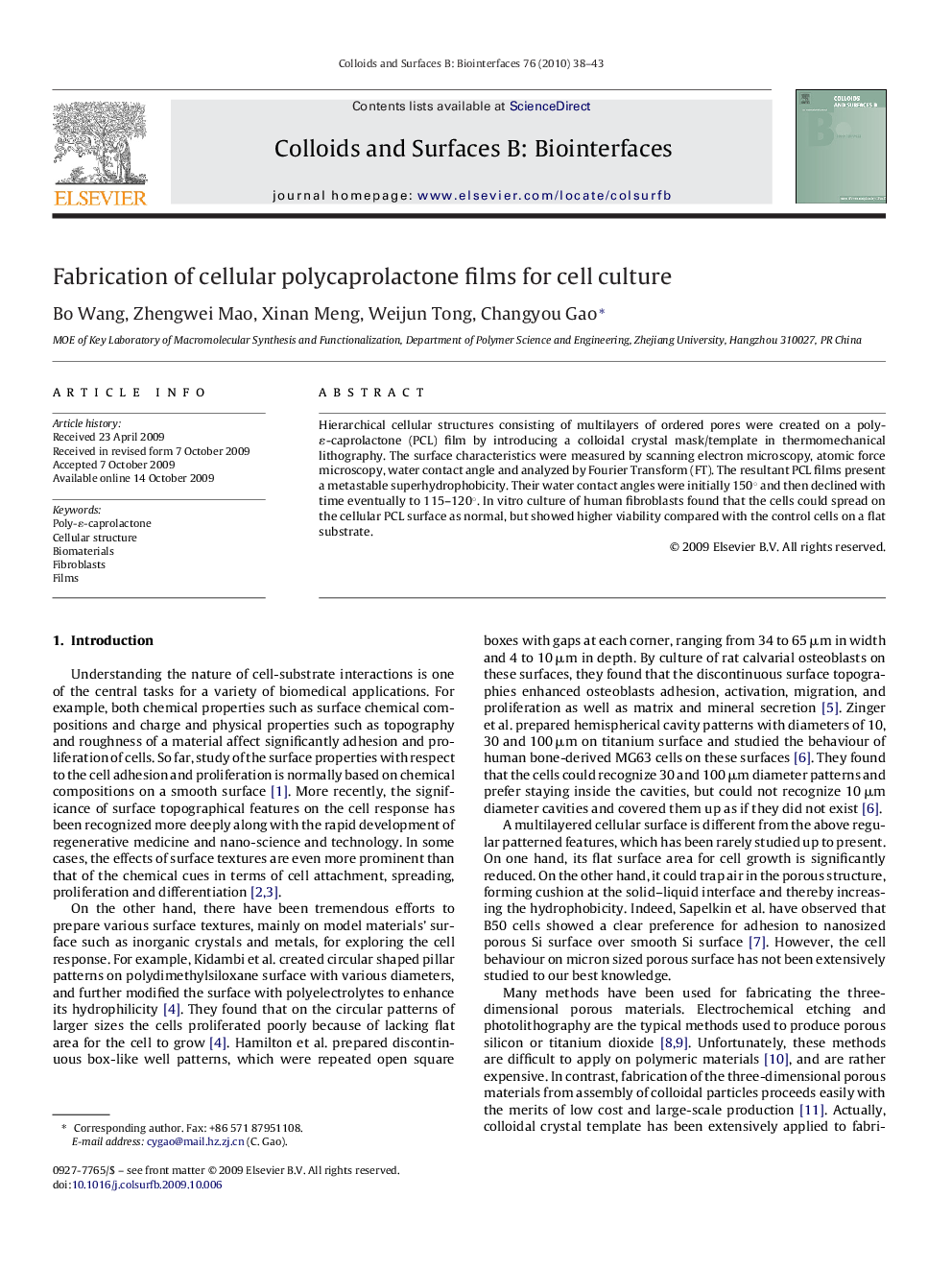| کد مقاله | کد نشریه | سال انتشار | مقاله انگلیسی | نسخه تمام متن |
|---|---|---|---|---|
| 601992 | 879960 | 2010 | 6 صفحه PDF | دانلود رایگان |

Hierarchical cellular structures consisting of multilayers of ordered pores were created on a poly-ɛ-caprolactone (PCL) film by introducing a colloidal crystal mask/template in thermomechanical lithography. The surface characteristics were measured by scanning electron microscopy, atomic force microscopy, water contact angle and analyzed by Fourier Transform (FT). The resultant PCL films present a metastable superhydrophobicity. Their water contact angles were initially 150° and then declined with time eventually to 115–120°. In vitro culture of human fibroblasts found that the cells could spread on the cellular PCL surface as normal, but showed higher viability compared with the control cells on a flat substrate.
Fibroblasts attached on multilayer cellular structures, which were fabricated by thermomechanical lithography with a colloidal crystal mask. The cell-material interface presented higher hydrophobicity according to water contact angle measurements, suggesting existence of air cushion at the interface.Figure optionsDownload as PowerPoint slide
Journal: Colloids and Surfaces B: Biointerfaces - Volume 76, Issue 1, 1 March 2010, Pages 38–43